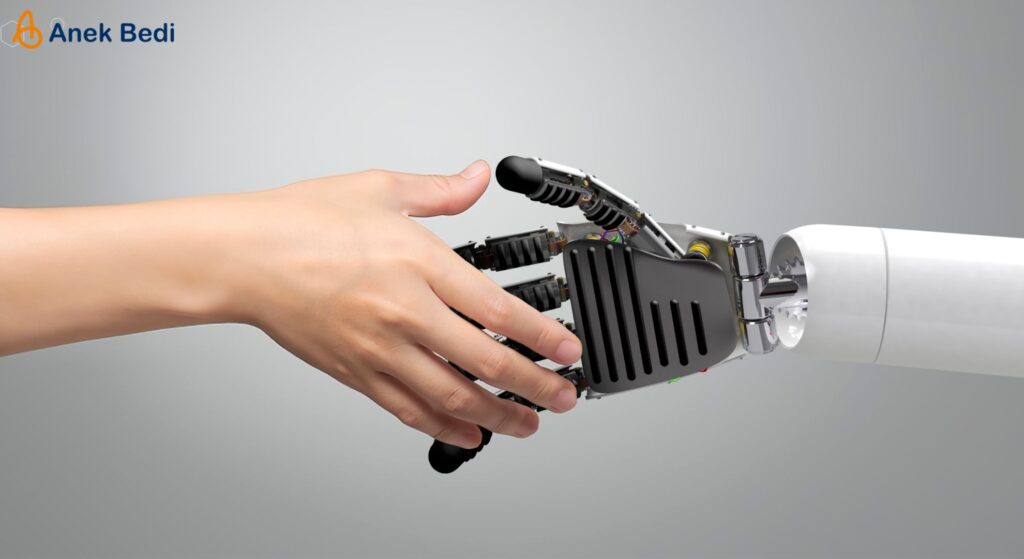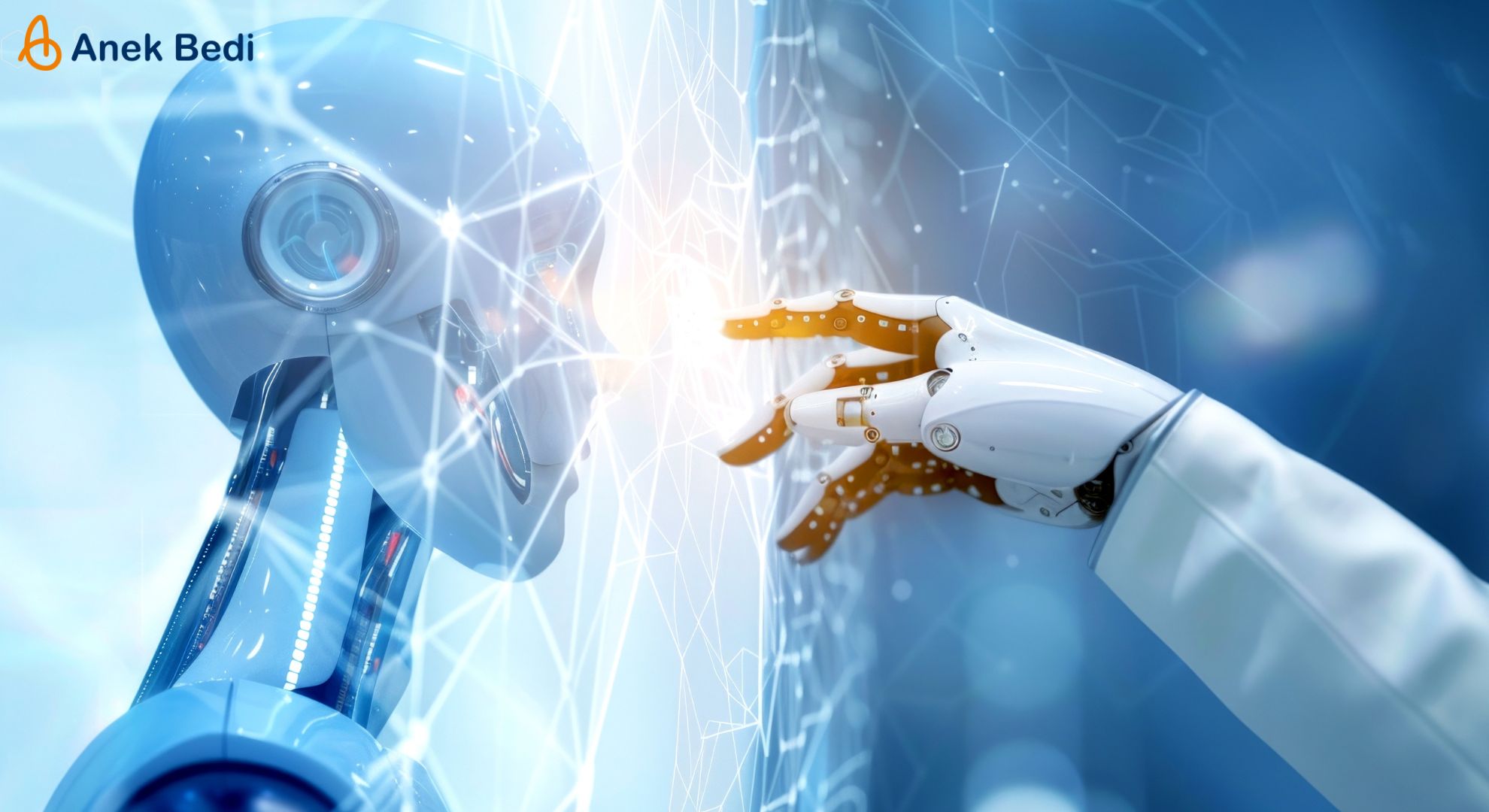AI is the hot new co-worker everyone’s talking about.
Some love it – “It’s making my life easier!”
For some, the concern is real -“Guess my role has an expiry date now.”
And then there are people like me… who are fascinated but also a little concerned about how we’re letting it into our offices.
I mean, think about it, AI doesn’t need coffee breaks, never takes sick leave, and can process data faster than you can say “spreadsheet.” But that’s exactly why we need to talk about AI ethics in workplace before we roll out the welcome mat.
1. The Bias Problem
Here’s the thing: AI learns from data.
And data comes from… us. AI ethics in workplace
And we humans? We’re a little biased. (Okay, sometimes a lot biased.)
Example: Imagine a company using AI to shortlist candidates for hiring. If the historical hiring data favors certain schools, cities, or even genders, guess what? The AI will quietly learn the same preference and repeat it.
It’s like teaching a kid all your bad habits and then being shocked when they copy you.
The ethical challenge here:
If we’re not careful, AI could automate discrimination at scale and worse, it might be harder to spot because “the computer decided it.” We need to make sure AI decisions are checked by humans who understand fairness, not just efficiency.
2. Privacy – Who’s Watching?
We’ve all had that creepy moment when we talk about a product, and suddenly ads for it appear everywhere. Now imagine your employer using AI to “monitor productivity.”
Sounds harmless, right? Except… it might track your keystrokes, emails, time spent on tabs, even how long you take to reply to messages.
The ethical challenge here:
Where do we draw the line between measuring performance and becoming Big Brother?
People work better when they’re trusted, not when they feel like every mouse click is being judged.
AI should help employees, not make them feel like suspects.
3. AI at Work – Facing the Harsh Truth
Let’s address the awkward question: Will AI take my job?
Truth bomb: In some cases… yes.
But the bigger truth? AI will change jobs more than it will erase them.
For example:
- Less calculator work, more strategy talks – that’s the future for many accountants.
- A customer support rep might let AI handle the repetitive queries so they can focus on complex cases that need empathy.
The ethical challenge here:
If a company decides to use AI to replace roles, it’s only fair to have a plan for retraining or transitioning those employees. Otherwise, we risk creating a future where tech grows but people are left behind. AI ethics in workplace

4. Transparency – Can You Explain That Decision?
AI can be like that one colleague who gives you an answer but refuses to explain why.
“Oh, I just know.”
Great… but useless when lives, jobs, or money are on the line.
Imagine an AI system rejects a loan application or denies someone a promotion. If you can’t explain how it arrived at that decision, trust goes out the window. AI ethics in workplace
The ethical challenge here:
We need “explainable AI” – systems that can be questioned and understood, not treated like magic boxes. In the workplace, people deserve to know how and why decisions about them are being made.
5. The Dependency Trap
I love AI tools, they save time and boost productivity. But I’ve noticed something:
The more we rely on them, the less we question them.
Think about spellcheck. We trust it so much that we don’t double-check certain words anymore. Now apply that to big decisions, if AI suggests a strategy, approves a hire, or flags an “issue,” how many of us will take the extra time to challenge it?
The ethical challenge here:
Over-dependence can make us lazy thinkers. AI should be a partner, not a boss we blindly follow. The human judgment layer is not optional, it’s essential.
6. The Data Ownership Dilemma
Who owns the data AI learns from?
The employee who created it? The company that stored it? The AI tool provider?
Let’s say your AI assistant learns your writing style and workflow over years. If you move to a new job, does that know-how stay with your old company? Or does it stay with you?
The ethical challenge here:
We need clear rules about data ownership. Otherwise, we might find ourselves in situations where personal contributions are used without credit, consent, or compensation.
7. Emotional Impact – Humans Are Not Code
AI is logical. It’s fast. But it’s not emotional.
The workplace, however, runs on a mix of logic and feelings. Recognition, appreciation, empathy, these can’t be automated (at least, not well).
When a chatbot delivers bad news like rejection for a job or a performance review, it can feel cold and impersonal. No one enjoys being treated like a task to be closed instead of a person to be heard.
The ethical challenge here:
If AI strips away too much human interaction, we risk making workplaces efficient but soulless. People don’t want to feel like they’re being processed, not valued.
So… What’s the Way Forward?
I’m not anti-AI.
I’m pro-responsible AI.
We can absolutely use these tools to make work better, faster, and even more creative, but only if we set guardrails.
Here’s what I believe every workplace should commit to:
- Human oversight on all important AI-driven decisions.
- Bias checks before and during AI deployment.
- Clear privacy policies so employees know exactly what’s being monitored.
- Training programs to help workers adapt, upskill, and work alongside AI.
- Clarity on both the mechanics of AI and the origins of its data.
AI is like electricity in the early days, incredibly powerful, but dangerous if we don’t wire it properly.
We have a small window to get this right, before bad habits become “how it’s always been.”
The workplace of the future should be a partnership between humans and AI, where the tech does the heavy lifting, and people do the thinking, feeling, and leading.
Thanks for sticking till the end.
I’ll be back with more such insights soon, because the AI conversation is just getting started, and trust me, you’ll want to be part of it.
For more exciting blog like this do visit us :- https://anekbedi.com/

